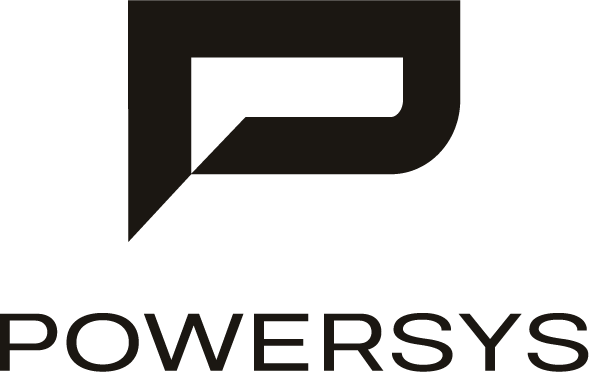Instructors:
– Dr. Antonio Lazaro Blanco
> Biography
Language: English
Public and technical background required
The training course is recommended to everybody interested in the theoretical aspects and practical design issues of digital control of voltage source converters. Having previous experience in power electronics and circuit simulation is useful, but beginners with no background in those topics will also benefit from the course.
Training Objectives
The objective of the course is to acquire the fundamental competences in single-phase and three-phase PFC converters. These competences are:
- Selection of the best topology for each type of application (EV chargers, motor drives, aerospace AC/DC front-end converters and power supplies).
- Inductors design under the specific requirements of the PFC operation. Effective Cots inductor selection.
- EMI filter design.
- Power losses calculations and MOSFET / IGBT / Diodes selection.
- Dynamic analysis of dynamic modeling of PFC converters.
- Simple but deep understanding the PFC control loops.
- Effective analog and digital controller design using SmartCtrl.
- Effective PSIM simulation of 1-ph & 3-Ph PFC converters (including conducted EMI estimation by simulation).
In addition to the topology selection, specific aspects regarding the previous competences will be shown for each type of application.
Intended audience:
The training course is recommended to everybody interested in the theoretical aspects and practical design issues of PFC converters.
The course methodology and materials, together a complete set of simulations, design examples and theoretical explanations grouped in annexes make this course very useful for both, the practicing engineer and university instructor and researcher.
Having previous experience in power electronics and circuit simulation is useful, but beginners with no background in those topics will also benefit from the course.
Program
Section I: General Aspects
- Five basic concepts
- AC/DC conversion requirement and specifications
- Single-phase topologies and Applications
- Three-phase topologies and Applications
Section IIa: Power stage design
- Local and global average and rms magnitudes
- Power losses calculations
- Boundary Conduction Mode design
- Continuous Conduction Mode design
- Capacitor Selection
- Semiconductor Selection
Section IIb: Inductor design
- Basic concepts of magnetism
- Constructive elements of the magnetic components
- Cores materials and geometries.
- Winding Types and material.
- Design of gapped inductors
- Design of Iron Powder Inductors
Section IIc: PFC EMI Filter Design
- Design Process
- BCM and CCM Boost Converter Comparison
- EMI filter size vs PFC inductor size optimization
- 3-phase LISN and EMI Filters
- Common Mode (CM) Noise Measure
Section IIIa: Modeling and control of single-phase PFC
- Basic control structures
- Modeling the CCM current loop
- Requirements of the current loop
- Modeling the CCM voltage loop
- Multiplier control with UC 3854
- Modeling the BCM voltage loop
- Crossover and cusp distortion
- Converter – EMI filter interaction
- Converter – source interaction
Day 2
Section IIIb: Digital control of single-phase PFC
- Sampling strategy
- Digital Delay
- Sensor Gains and bandwidth
- Practical Feedforward implementation
- Practical compensators implementation. PI controller with Anti windup
- Compensator design with SmartCtrl.
- Complete two loops implementation using PSIM C blocks
- Simulation results
Section IVa: 3-Ph Boost PFC
- Introduction
- Current control in stationary reference frame
- Alfa-Beta control structure
- Alfa-Beta current control modeling
- Alfa-Beta current control design
- dq current control
- Grid Synchronization
- Voltage control Modeling
- Voltage control design
- Simulation results
Section IVb: 3-Ph Vienna Rectifier
- Introduction
- Alfa-Beta control structure
- Current control modeling and design
- Voltage control Modeling and design
- Simulation results
Section IVc: Three-Phase Buck Rectifier
- Introduction
- Current Space Vector Modulation
- PWM Modulator
- Current and voltage control modeling
- EMI Filter Design
- Simulation results
Section IVd: Digital control of 3-Ph VSI and 3-Ph PFC. SmartCtrl Design, PSIM Simulation and HW Experiments Using SoC Platform
- System overview
- PSIM Simulation
- Experiment set-up
- Adjustment & Parameterization
- VSI Control
- PFC Control
- Use case: System response to Ti variation
Methodology:
The overall methodology is based on theoretical explanation on main concepts and details followed by by
PSIM simulations and controller design by means of
SmartCtrl.
- 60% theoretical contents
- 40% practical exercises by means of guided PSIM simulations and SmartCtrl designs
The course has been developed to serve as reference material for future designs. The main theoretical aspects are covered in the slides explanation from a conceptual point of view. Mathematical developments are provided in a set of well-organized annexes. The theoretical concepts are shown using a complete collection of ready-to–run PSIM simulations from basic simulations to complex circuits: e.g. 3-ph boost PFC + EMI Filter and LISN.
In the control sections, SmartCtrl reference designs will provide a simple way to design the controllers that can be also used for future designs.
A complete set of SmartCtrl and PSIM exercises already developed will be provided to the audience together with the rest of course materials. During practical exercises, attendees will be asked to change some component values and/or modify the schematics of the provided examples and carry out simulations.
Location:
ECOS Office Center
Stockholmer Platz 1
70713 Stuttgart
GERMANY
Computer and temporary PSIM and SmartCtrl licenses:
Each participant will have to bring a personal computer.
PSIM and SmartCtrl temporary licenses will be provided for the duration of the course.
> Register Now
General conditions for training:Please register as early as possible if you plan to attend the training. As soon as the minimum of participants is reached, POWERSYS will confirm the course. The registration to the course includes the lunches and coffee breaks. Participants will have to pay 100% in advance before the course.
Cancellation can be made according to POWERSYS’ General Conditions for courses:
Withdrawal from the Course:In case you cannot attend the course after having registred, please contact us as soon as possible at
marketing@powersys.fr
- In case of cancellation three weeks OR MORE before the beginning of the course, the participants will not be charged.
- In case of cancellation less than three weeks before the beginning of the course, POWERSYS will charge the participant 50% of the course fees.
Please note that POWERSYS will not reimburse any travel and/or accommodation expenditure in case of cancellation of the course. We recommend you to make your travel arrangements once the course is confirmed.
For French participants: POWERSYS est enregistré en tant que prestataire de formation (auprès du Préfet de la Région Provence-Alpes-Côte d’Azur sous le numéro 93 13 13256 13). Une convention de formation peut être établie sur demande avant la date de formation.
Contact for any additional information: Please feel free to contact us for any further information
marketing@powersys.f
r




